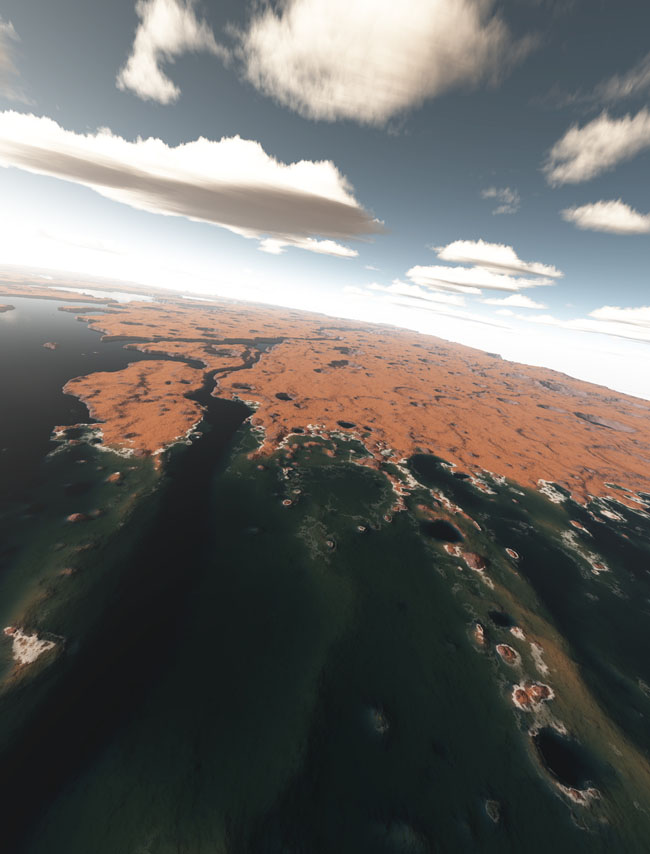Oceans of Ancient Mars May Have Sprung From Slow Leaks

The seas and lakes thought to havefilled the basins ofancient Mars could have emerged from cracks in the ground, scientistsnowsuggest.
Although Mars is cold and dry today,wateris thought to have coveredmuch of the Red Planet in the distant past.This could explain, for instance, why the northern lowlands holdextensivesedimentary deposits that resemble those seen in the abyssal plains ofEarth'socean floors.
The origin of these deposits iscontroversial. One theorysuggests ancientMars' oceans formed after huge volumes of water and sedimentwere suddenlyreleased from zones of collapsed crust known as chaotic terrains.However,these zones of collapse are rare on Mars on the whole, while the plainsdeposits are widespread.
A new study suggests this wateremerged from aquifers,through extensive and widespread fractures in the floors ofcontinent-scale Martianbasins. Frequent, long-lived discharges of groundwater wouldlead to thedevelopment of river systems and cause large-scale regional erosion,sedimentary deposits and water ponding,the researchscientists say.
"Inaddition, our modelindicates this could have happened at any point in the planet'shistory,"said J. Alexis Palmero Rodriguez at the Planetary Science Institute inTucson,Ariz. "There could have been many oceans on Mars over time."
Evidencein the Red Planet'snorthern plains south of Gemini Scopuli in Planum Boreum suggests thatit wasnot massive, sudden outflows of water that formed the oceans, Rodriguezsaid.Instead, water seeped up from underground over time, and "areas of thenorthern plains ultimately collapsed, creating the rough hilly surfaceswe seetoday," he said.
"Someplateaus may haveavoided this fate and preserved sedimentary plains containing animmense recordof hydrologic activity," Rodriguez added. "The geologic record in thecollapsed hilly regions would have been jumbled and largely lost."
Breaking space news, the latest updates on rocket launches, skywatching events and more!
Thesenew findings could shedlight on the nature of any seas that once covered Mars. It remainsuncertain,for instance, whether they would have been warm orcold.
Also,if lifeexisted underground on Mars,these discharges ofwater could have brought it up to the surface. Organisms and theirfossils maytherefore be preserved within some of these sedimentary deposits,Rodriguezsaid.
Rodriguezand his colleagues willdetail their findings in the November issue of the journal Icarus.
- Gallery?Water onMars Imagined
- Meteorite-BasedDebate Over MartianLife Is Far from Over
- MostAmazing MarsRover Discoveries

Charles Q. Choi is a contributing writer for Space.com and Live Science. He covers all things human origins and astronomy as well as physics, animals and general science topics. Charles has a Master of Arts degree from the University of Missouri-Columbia, School of Journalism and a Bachelor of Arts degree from the University of South Florida. Charles has visited every continent on Earth, drinking rancid yak butter tea in Lhasa, snorkeling with sea lions in the Galapagos and even climbing an iceberg in Antarctica. Visit him at http://www.sciwriter.us
